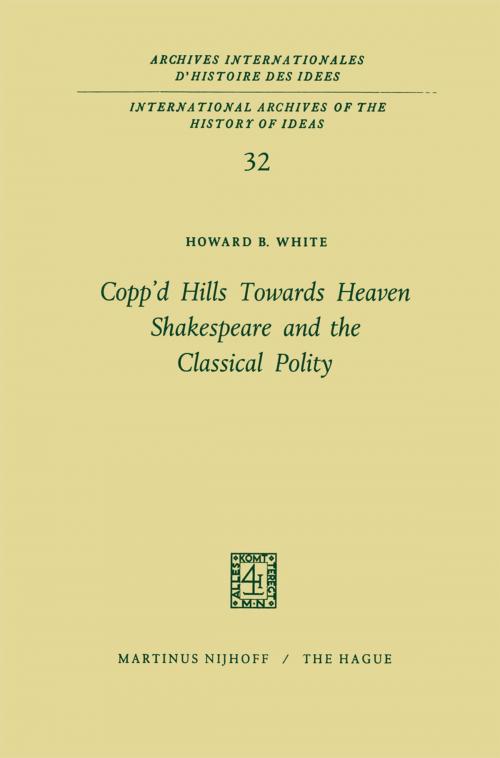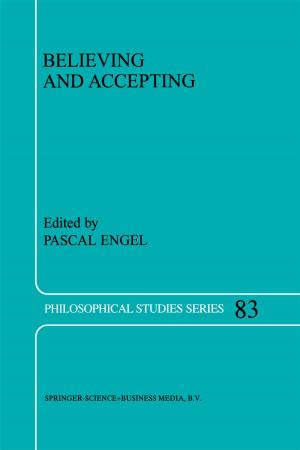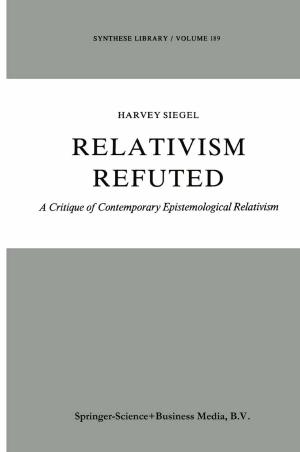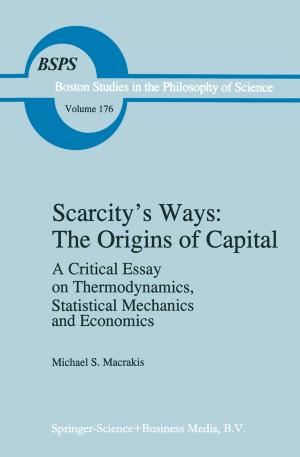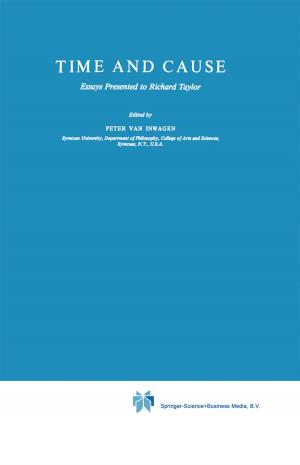Copp’d Hills Towards Heaven Shakespeare and the Classical Polity
Nonfiction, Religion & Spirituality, Philosophy, Modern, History| Author: | Howard B. White | ISBN: | 9789401031899 |
| Publisher: | Springer Netherlands | Publication: | December 6, 2012 |
| Imprint: | Springer | Language: | English |
| Author: | Howard B. White |
| ISBN: | 9789401031899 |
| Publisher: | Springer Netherlands |
| Publication: | December 6, 2012 |
| Imprint: | Springer |
| Language: | English |
The departmentalism of American universities has doubtless much to recommend it. It indicates that exuberance is not a sufficient sub stitute for scholarship, that, for better or for worse, every scholar today must be something of a specialist. But when any great writer and great thinker reaches out and grasps the whole of human life, the study of his work transcends specialization. And while exuberance may not replace scholarship, it may accompany it. Most of my work has been done in the history of political philosophy. I have dared to overstep departmental boundaries, because I believe that Shakespeare has something to say to political philosophy. I am not the first to express this view. Whether I express it well or badly, I shall not be the last. I want to thank Leo Strauss, my teacher. He has read the manus cript and given me the benefit of his insight and judgment. I want to thank Richard Kennington, who has taken so much time from his own work to comment meticulously and constructively on this work as on other things I have written. His help has been generous, and my appreciation is deep. I must, in particular, thank my colleague, Adolph Lowe. He has perused this study, much of it in several versions. Through long walks in Manchester, Vermont, we have discussed my work and his comments. Usually his comments have been compelling. I can regret only that I am completely unqualified to reciprocate.
The departmentalism of American universities has doubtless much to recommend it. It indicates that exuberance is not a sufficient sub stitute for scholarship, that, for better or for worse, every scholar today must be something of a specialist. But when any great writer and great thinker reaches out and grasps the whole of human life, the study of his work transcends specialization. And while exuberance may not replace scholarship, it may accompany it. Most of my work has been done in the history of political philosophy. I have dared to overstep departmental boundaries, because I believe that Shakespeare has something to say to political philosophy. I am not the first to express this view. Whether I express it well or badly, I shall not be the last. I want to thank Leo Strauss, my teacher. He has read the manus cript and given me the benefit of his insight and judgment. I want to thank Richard Kennington, who has taken so much time from his own work to comment meticulously and constructively on this work as on other things I have written. His help has been generous, and my appreciation is deep. I must, in particular, thank my colleague, Adolph Lowe. He has perused this study, much of it in several versions. Through long walks in Manchester, Vermont, we have discussed my work and his comments. Usually his comments have been compelling. I can regret only that I am completely unqualified to reciprocate.
